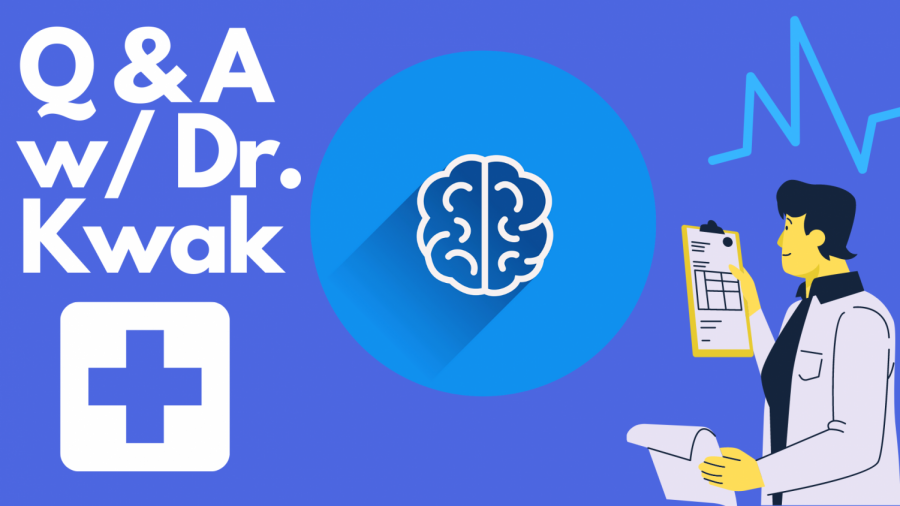Interview with family physician about mental health
May 1, 2021
Dr. Kwak is a board-certified family physician based in Voorhees. He works with families to manage and diagnose a variety of adolescent and adulthood medical problems.
Q: As we approach May or Mental Health Awareness Month, more people are shedding light on issues regarding mental health. What does mental health mean to you?
A: I would say that mental health means general health. Your overall health depends on your mental health as well. As you grow up, you’re going to face a lot of challenges, and I guarantee you some of those are going to deal with mental health, especially in college.
Q: What kind of effects does mental health have on physical health?
A: Mental health is intertwined with physical health. If your mental health is good, then your physical health can only benefit as a result. That’s not to say that if you’re mentally healthy, you’re going to be physically healthy. However, you’re more likely to be physically in shape if you’re mentally in shape. And it works both ways, so if you’re mentally unhealthy, then it’s going to have a physical toll on your body. Say, for example, if you or someone else is going through depression, then you can easily lose your appetite, have trouble sleeping, [and] not want to move or exercise. All of those things can negatively impact your physical health.
Q: What are some of the basics to staying mentally healthy?
A: I think one of the basics is going to sleep on time. Sleeping at 1 AM and getting up at 6 or 7 AM is extremely unhealthy both physically and mentally. So getting enough sleep is fundamental for your mental health. Other things are eating healthy foods and drinking enough water. Simple things, like exercising on a regular basis. Even with Covid-19 around, people still need to go outside and get out of their homes. Staying inside your home and being in front of the computer screen isn’t good for you at all. So have enough rest, eat good foods, and exercise. Also, talk to your friends and family about the things that you’re going through. It’s important to be open.
Q: What are some ways to deal with stress?
A: The ways I help my patients deal with stress depend from person to person because everyone’s condition and treatment will be different. So it’s difficult to give a straight answer, but some general things would be, like I said, exercise. My favorite exercise is Kendo, which helps me relieve my own stress. Other things like meditation; affirmations; relaxation, like a massage or a bath; [and] therapy help as well, but, again, it’s different for everyone.
Q: What’s your advice for people who are afraid or too embarrassed to ask for help?
A: No one should ever be embarrassed. Taking care of your health should always be a priority. But I can understand if some people don’t want to immediately open up about their issues. A lot of it is private and personal, and it’s going to be hard for people to ask for help. Now I don’t know the exact reasons why a person would be afraid. But the sooner that they talk to their guardian or parent or friend, the quicker they get the help they need.
Q: Have you noticed any effect that Covid-19 has on people mentally?
A: Yes, definitely. We all know how Covid-19 has hurt people physically, but it’s also hurt people mentally either directly or indirectly. Some people are having problems with their mental health because everyone’s at home, and they’re not socializing as much as they used to. To remain socially isolated from others for one year will obviously hurt a person’s mental health.
